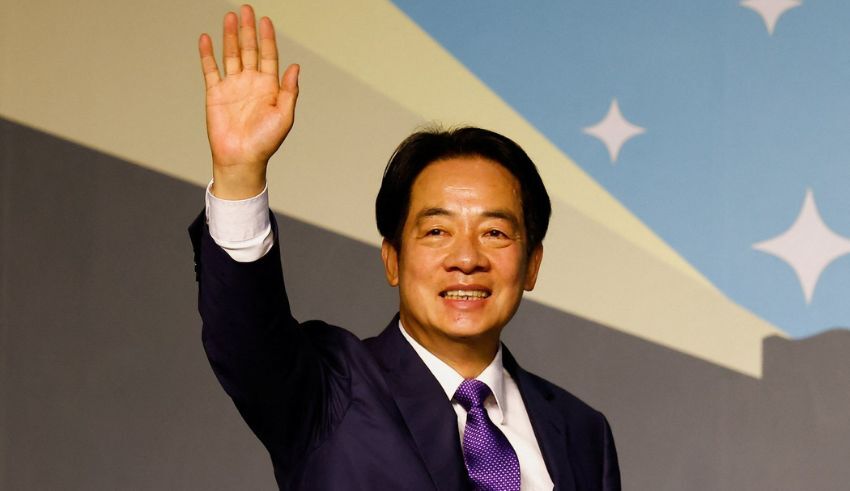
Taiwan is a self-ruled island that has its own government, military, and currency, but is claimed by China as part of its territory.
China considers Taiwan as a renegade province that must be reunited with the mainland, by force if necessary. China has never renounced the use of military force to achieve this goal, and has repeatedly warned other countries not to interfere in its internal affairs or establish official ties with Taiwan.
Taiwan, however, considers itself as a sovereign and democratic nation, and has resisted China’s pressure and threats. Taiwan has also sought to maintain and enhance its relations and partnerships with other countries and actors, especially those that share its values and interests, such as the US, Japan, and the European Union.
The issue of Taiwan has become a source of tension and controversy between China and the rest of the world, especially after Taiwan’s presidential election on January 13, 2024, where the incumbent president William Lai, who advocates for Taiwan’s sovereignty and democracy, won a landslide victory over his rival Han Kuo-yu, who favors closer ties with China.
The election was widely seen as a referendum on Taiwan’s future and its relations with China, amid the rising pressure and threats from Beijing.
The trigger and the reaction of the issue
The issue was triggered by the global congratulations that poured in for Taiwan’s president-elect William Lai, following his victory. Many countries and leaders, such as the US, Japan, Australia, Canada, Germany, France, and the UK, sent messages of congratulations to Lai, and expressed their solidarity and friendship with Taiwan. They also praised Taiwan’s successful democratic process and its achievements in fighting the Covid-19 pandemic.
The reaction of China to the issue was to express its anger and indignation over the congratulations, and to rebuke and warn the countries that sent them.
China accused them of violating the “One China principle“, which states that there is only one China and Taiwan is part of it, and of interfering in China’s internal affairs. China also said that the congratulations would only embolden the “Taiwan independence forces” and harm the peace and stability in the region.
China’s foreign ministry spokesperson Zhao Lijian said that the congratulations were “a serious violation of the One China principle and the three China-US joint communiqués”, which form the basis of the diplomatic relations between China and the US, and that they were “a gross interference in China’s internal affairs”.
Zhao also urged the countries to “stop their provocations and return to the right track of respecting the One China principle and handling Taiwan-related issues prudently”.
China’s state media also echoed Zhao’s remarks, and criticized and ridiculed the countries that congratulated Taiwan. The Global Times, a nationalist tabloid, said that the congratulations were “a farce” and “a joke”, and that they showed the “hypocrisy and double standards” of the Western countries. The People’s Daily, the official newspaper of the Communist Party of China, said that the congratulations were “a futile attempt” and “a miscalculation”, and that they would only “isolate themselves from the trend of history and the will of the people”.
Keep Reading
The implications and the prospects of the issue
The issue has implications and prospects for the future of Taiwan and the world, as well as for China and the international community. On one hand, the issue could worsen and complicate the relations and the situation between China and Taiwan, and between China and the rest of the world, and increase the risk of confrontation and conflict. On the other hand, the issue could also improve and facilitate the communication and the understanding between Taiwan and the world, and between China and the international community, and create more opportunities for dialogue and cooperation.
The issue also depends on the actions and the responses of China, Taiwan, and the other countries and actors involved, such as the US, the EU, the UN, and the civil society.
They could either support or oppose the congratulations, and either encourage or discourage the dialogue and the engagement between China and Taiwan, and between China and the world. They could also propose or oppose additional measures or initiatives to address and resolve the issue and to maintain and promote the peace and the stability in the region and the world.
The issue of China’s anger at every country congratulating Taiwan is a complex and sensitive issue that requires careful and prudent handling and management, as well as constant and constructive dialogue and consultation, among all the parties concerned. The issue of China’s anger at every country congratulating Taiwan is not only a matter of sovereignty, but also a matter of security, democracy, and human rights.
The issue of China’s anger at every country congratulating Taiwan is not only a bilateral issue, but also a regional and a global issue that affects the interests and the values of many countries and actors. The issue of China’s anger at every country congratulating Taiwan, therefore, is a challenge and an opportunity for China, Taiwan, and the world.




